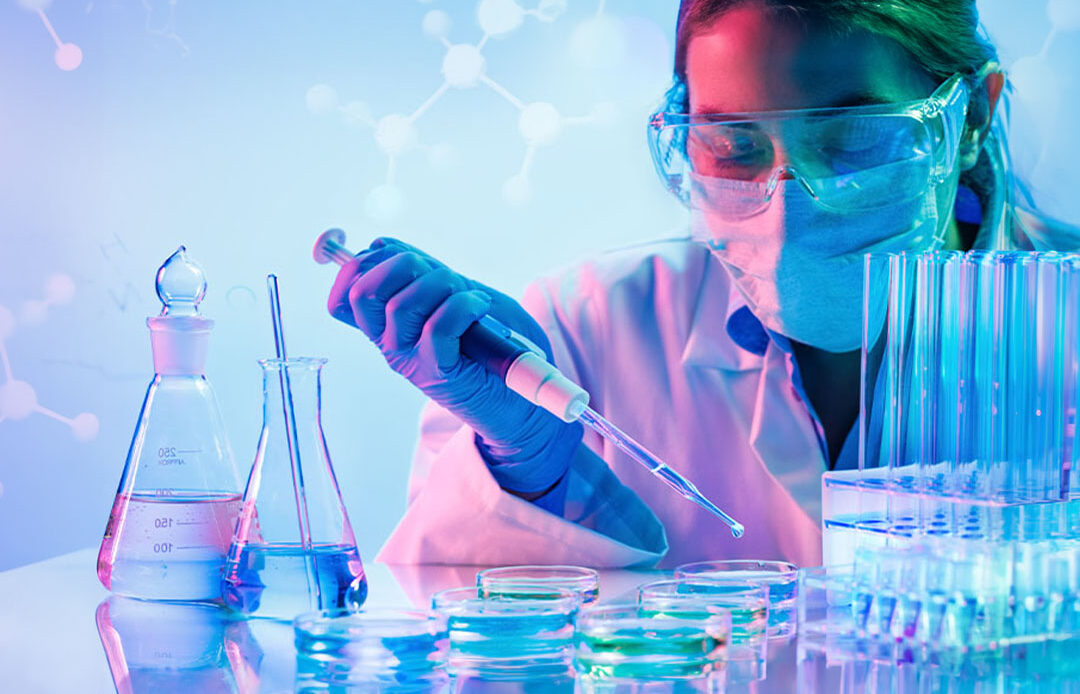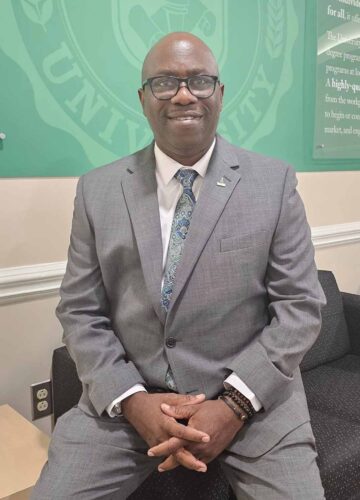Launch Your STEM Career With WilmU’s New Chemistry Degree

When Dr. Esosa Iriowen — aka “Dr. E” — talks about chemistry, his face lights up. It is his calling and his passion, which he’s happy to share with students in Wilmington University’s new Bachelor of Science in Chemistry program, with classes starting in January 2025.
“I’m excited about this program because it represents a significant step forward for Wilmington University in the STEM fields,” says Dr. Iriowen, who grew up in Nigeria and earned degrees on three continents. “Chemistry is central to many scientific and industrial innovations, and this program is designed to give students the skills and knowledge to be at the forefront of those advancements.”

With courses available in person, online or in a combined hybrid format, the flexible, affordable B.S. in Chemistry program will emphasize real-world applications and hands-on experiences — either in WilmU’s state-of-the-art labs or through innovative at-home lab kits.
“The interdisciplinary approach we’ve incorporated allows students to explore how chemistry interacts with biology, physics and environmental science, making them well-rounded and adaptable professionals in a variety of sectors,” says Dr. Iriowen, chair of WilmU’s natural sciences programs.
Chemistry Internships in the ‘Chemical Capital of the World’
Delaware is considered the “capital” of the $4 trillion global chemical industry — providing opportunities for internships and collaborations with company partners. According to the U.S. Bureau of Labor Statistics, it leads the nation with the highest concentration of chemist jobs and ranks among the top-paying states for chemist salaries.
Cooperative learning and mentored research projects will help students put theory into practice as they prepare for a rewarding future in a wide range of industries, including chemical manufacturing, biotechnology, environmental science and pharmaceuticals.
At WilmU, anyone who already has an associate degree in Chemistry can earn academic credit toward a full bachelor’s degree.
“The program also provides an excellent foundation for those looking to continue their education in graduate school or professional programs such as medicine, pharmacy and dentistry,” says Dr. Iriowen. “With the increasing demand for STEM professionals, our graduates are well positioned to enter a job market that values their skills and expertise.”
Chemistry as a Second Area of Study
Non-Chemistry majors can boost their scientific knowledge and lab skills with a 20-credit Chemistry minor. It’s open to students studying Health Sciences, Psychology, Interdisciplinary Studies, Biology and other programs.
“For anyone who is interested in health sciences or biological/environmental sciences, it coincides with those topics very closely and helps me gain a deeper understanding of how chemistry is involved these other fields,” says Samantha Kidwell, a WilmU Biology student minoring in Chemistry.
She appreciates Dr. Iriowen’s care and commitment, calling him “a very well educated, well respected and passionate individual for his love of the sciences.”
“He is involved in several different courses and scientific opportunities, and his eagerness to share his knowledge and experiences with students is admirable and inspiring,” Kidwell says.
Prepare for a future of scientific discovery with Wilmington University’s B.S. in Chemistry program, part of a suite of STEM offerings in the College of Health Professions and Natural Sciences.



